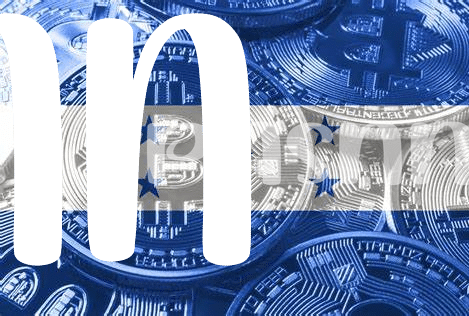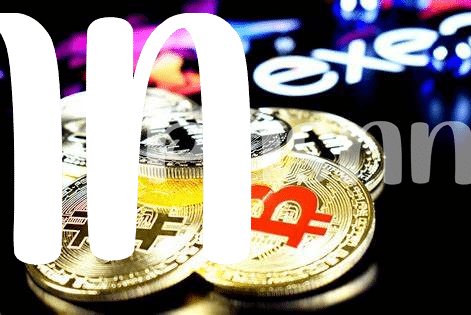The Rise of Bitcoin Remittances in Honduras 🚀

In recent years, the adoption of Bitcoin remittances in Honduras has witnessed a notable surge, reshaping the way people transfer funds across borders. This digital currency, with its decentralized nature, has gained traction as a reliable and efficient medium for individuals to send and receive money globally. The rise of Bitcoin remittances is not only streamlining the transaction process but also offering a more cost-effective alternative compared to traditional methods, revolutionizing the financial landscape in Honduras. As more people embrace the use of Bitcoin for remittances, it is opening doors to new opportunities and paving the way for a more inclusive and accessible financial ecosystem in the country.
Impact on Financial Inclusion and Accessibility 💳
Bitcoin remittances in Honduras have brought about a significant shift in the realm of financial transactions, particularly in terms of enhancing accessibility for individuals who were previously excluded from traditional banking systems. By leveraging the decentralized nature of Bitcoin, these remittances have the potential to empower underserved communities by providing them with direct access to financial services without the need for intermediaries. This newfound accessibility to digital currency not only fosters financial inclusion but also opens up avenues for economic participation and growth within these communities.
Moreover, the impact of Bitcoin remittances extends beyond just accessibility, as it also supports the concept of financial empowerment. By eliminating barriers such as high transfer fees and lengthy processing times associated with traditional remittance methods, Bitcoin transactions enable individuals to have more control over their financial resources. This shift towards greater financial autonomy has the potential to reshape the dynamics of economic participation and inclusion, not just in Honduras but in various regions where traditional banking services are limited.
Overcoming Regulatory Challenges and Adoption 🧩

Navigating the intricate landscape of regulations, Bitcoin remittances in Honduras are poised to revolutionize cross-border transactions. The challenges of compliance are being met with innovative solutions, paving the way for broader adoption in the country. As regulatory frameworks evolve to accommodate digital currencies, the potential for financial inclusion and accessibility is amplified. By fostering collaboration between government entities and the cryptocurrency ecosystem, Honduras stands at the forefront of embracing this transformative technology. The shift towards decentralized financial systems signals a paradigm shift in how remittances are processed, offering a glimpse into a future where traditional barriers are dismantled in favor of a more inclusive and efficient transfer of value.
Empowering Communities and Driving Economic Growth 💰

Communities in Honduras are experiencing a positive shift with the introduction of Bitcoin remittances. This innovative approach is not only empowering individuals but also whole communities, leading to a ripple effect of economic growth and prosperity. As more people have access to financial services through Bitcoin, there is a noticeable increase in entrepreneurship and investment within these communities. This boost in economic activity is a testament to the potential of digital currencies in driving sustainable development and financial inclusion. The newfound opportunities created by Bitcoin remittances are not only changing lives but also reshaping the economic landscape of Honduras.
To learn more about the regulatory framework surrounding Bitcoin cross-border money transfer laws in Honduras, visit bitcoin cross-border money transfer laws in Hungary.
Innovations in Cross-border Transactions 🌐
Innovations in cross-border transactions are reshaping the way money moves across borders. With the integration of blockchain technology, the process has become faster, more secure, and cost-effective. The use of smart contracts automates transactions, reducing the need for intermediaries and streamlining the transfer process. Additionally, the transparency provided by blockchain ensures trust between parties, mitigating potential risks associated with traditional cross-border transactions. These innovations not only benefit individuals sending money abroad but also contribute to the overall efficiency and stability of the global financial system.
As technology continues to evolve, we can expect further advancements in cross-border transactions, facilitating seamless and instantaneous money transfers across borders. The collaboration between traditional financial institutions and fintech companies in harnessing these innovations will be crucial in driving economic growth and financial inclusion on a global scale. Amidst these exciting developments, it is essential to address any potential regulatory challenges and ensure that these innovations are accessible to all, maximizing their impact on global remittances.
The Road Ahead: Opportunities and Potential Pitfalls 🛣️

As the landscape of Bitcoin remittances in Honduras continues to evolve, there are a myriad of opportunities and potential pitfalls that lie ahead. The digital currency presents a unique chance to revolutionize the traditional remittance sector, offering faster and more cost-effective cross-border transactions. However, with this innovation comes the need for robust regulatory frameworks to ensure consumer protection and financial stability in the market. It is crucial for stakeholders to collaborate and address these challenges proactively, paving the way for a more inclusive and efficient remittance ecosystem.
To delve deeper into the legal aspects of Bitcoin cross-border money transfer, particularly in Haiti and Guinea-Bissau, it is essential to understand the regulatory landscape governing such transactions. For comprehensive insights into Bitcoin cross-border money transfer laws in Haiti, click here, and for a detailed examination of the regulatory framework in Guinea-Bissau, refer to the guidelines on Bitcoin cross-border money transfer laws in Guinea-Bissau. By staying informed and compliant with these regulations, stakeholders can navigate the complexities of cross-border transactions and seize the opportunities presented by the evolving fintech landscape.
